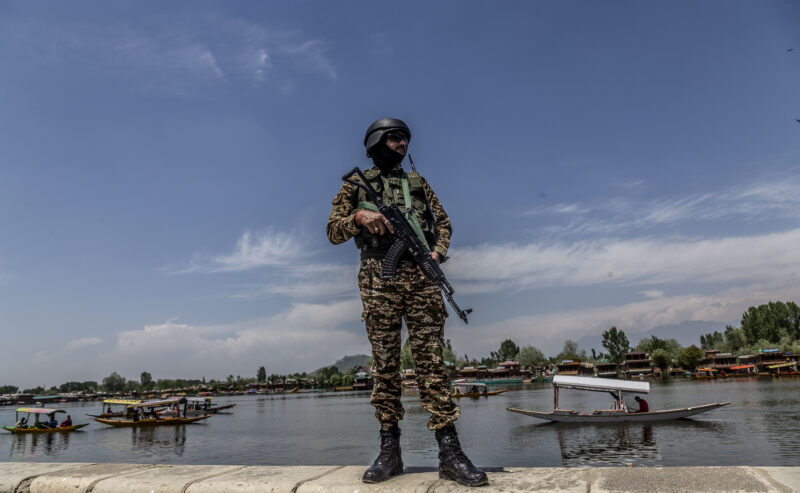Tensions between India and Pakistan have sharply escalated following a deadly militant attack in Kashmir, with troops exchanging fire overnight across the line of control in the disputed region.
The United Nations has called on both nuclear-armed nations to show “maximum restraint” to avoid further deterioration.
Officials confirmed that forces on both sides engaged in limited cross-border firing. Syed Ashfaq Gilani, a government official in Pakistan-administered Kashmir, said, “There was no firing on the civilian population.”
India’s military stated that the exchange was initiated by Pakistani forces using small arms and was “effectively responded to.” Three Indian military officials, speaking anonymously, confirmed Pakistan had opened fire on an Indian post, but no casualties were reported. There was no immediate response from Pakistan, and the claims remain independently unverified.
The skirmish comes amid heightened security operations and diplomatic fallout following an attack near Pahalgam that left 26 civilians dead — the worst such incident in the region in 25 years. India has blamed Pakistan for supporting militant groups behind the assault, which targeted civilians in Indian-administered Kashmir. A manhunt is underway for three suspects — one Indian and two Pakistani nationals.
In response, Indian authorities have intensified operations across the Kashmir Valley, deploying drones, launching search missions, and increasing troop presence. On Friday, two homes belonging to suspected militants were demolished, including one reportedly tied to Tuesday’s attack.
India’s army chief, Gen Upendra Dwivedi, is leading a high-level security review in Srinagar. Meanwhile, India has launched extensive air and naval drills, showcasing Rafale fighter jets and elite squadrons, moves seen by analysts as potential precursors to more assertive military action.
UN spokesperson Stéphane Dujarric addressed the growing crisis, stating, “We very much appeal to both the governments … to exercise maximum restraint, and to ensure that the situation and the developments we’ve seen do not deteriorate any further.” He added, “Any issues between Pakistan and India, we believe, can be and should be resolved peacefully through meaningful mutual engagement.”
Diplomatic efforts are also underway. Indian Foreign Secretary Vikram Misri briefed diplomats from 25 countries, including G20 members, Gulf nations, and China, presenting what India described as “clear evidence of cross-border complicity.” The attack was claimed by the Resistance Front, which Indian officials allege is a front for Pakistan-based Lashkar-e-Taiba. Islamabad has denied involvement and demanded evidence.
In his first public address following the attack, Indian Prime Minister Narendra Modi vowed justice: “I say to the whole world: India will identify, track and punish every terrorist and their backer. We will pursue them to the ends of the Earth.”
Pakistan rejected India’s allegations. In a statement issued after a national security meeting chaired by Prime Minister Shehbaz Sharif, the government said linking Islamabad to the attack was “frivolous,” and warned: “Any threat to Pakistan’s sovereignty and to the security of its people will be met with firm reciprocal measures in all domains.”
Kashmir remains a long-standing flashpoint between the two countries since 1947, with both sides claiming the region in its entirety but administering separate parts. The latest violence adds to a legacy of distrust and recurring conflict over the territory.




